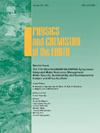评估印度实现可持续发展目标 7.1.2 的烹饪做法
IF 3
3区 地球科学
Q2 GEOSCIENCES, MULTIDISCIPLINARY
引用次数: 0
摘要
印度等发展中国家使用生物质作为主要能源。这包括木材、煤炭、粪便和农业废弃物。大多数农村家庭使用需要燃烧生物质的传统烹饪技术。这种做法会向空气中排放危险气体和微粒,增加室内外空气污染的风险,并引发哮喘、慢性阻塞性肺病和心血管疾病等严重健康问题。替代能源虽然可用,但并未得到广泛使用。这项研究旨在评估印度农村地区不同烹饪燃料、其排放物及其烹饪行为对健康的影响。研究还评估了政府降低排放措施的影响。研究考察了2014年至2024年期间发表的109项研究,这些研究主要关注一氧化碳、二氧化氮、二氧化硫和颗粒物(PM2.5、PM10)等室内污染物。结果表明,颗粒物对不良健康后果有重大影响。研究发现,最方便、最安全的烹饪燃料是液化石油气。然而,尽管政府实施了 Pradhan Mantri Ujjwala Yojana 等计划,安得拉邦、德里和拉贾斯坦邦等地的采用率仍然很低。分析认为,人口增长和基础设施落后都是该计划成效有限的原因。应开展进一步研究,跟踪排放情况,评估改用清洁燃料的实际效果。本文章由计算机程序翻译,如有差异,请以英文原文为准。
Evaluation of cooking practices in India to achieve SDGs 7.1.2
Developing nations, like India use biomass as their main energy source. This includes wood, coal, manure, and agricultural waste. The majority of rural homes utilize traditional cooking techniques that require burning biomass. This procedure emits dangerous gases and particulates into the air, increasing the risk of indoor and outdoor air pollution and serious health problems like asthma, COPD, and cardiovascular disorders. Although they are available, alternative energy sources are not widely used. This study aimed to assess the health effects of different cooking fuels, their emissions, and their cooking behaviors in rural India. It evaluated the impact of government initiatives to lower emissions as well. The study examined 109 studies published between 2014 and 2024 that focused on indoor pollutants such as CO, NO2, SO2, and particulate matter (PM2.5, PM10). The results showed that particulate matter significantly affects poor health outcomes. The most convenient and safest cooking fuel to use was found to be LPG. Nevertheless, despite government programs like the Pradhan Mantri Ujjwala Yojana, adoption rates were low in places like Andhra Pradesh, Delhi, and Rajasthan. According to the analysis, both population increase and poor infrastructure can be blamed for the scheme's limited efficacy. Further studies should be conducted to track emissions and evaluate the practical effects of switching to clean fuels.
求助全文
通过发布文献求助,成功后即可免费获取论文全文。
去求助
来源期刊

Physics and Chemistry of the Earth
地学-地球科学综合
CiteScore
5.40
自引率
2.70%
发文量
176
审稿时长
31.6 weeks
期刊介绍:
Physics and Chemistry of the Earth is an international interdisciplinary journal for the rapid publication of collections of refereed communications in separate thematic issues, either stemming from scientific meetings, or, especially compiled for the occasion. There is no restriction on the length of articles published in the journal. Physics and Chemistry of the Earth incorporates the separate Parts A, B and C which existed until the end of 2001.
Please note: the Editors are unable to consider submissions that are not invited or linked to a thematic issue. Please do not submit unsolicited papers.
The journal covers the following subject areas:
-Solid Earth and Geodesy:
(geology, geochemistry, tectonophysics, seismology, volcanology, palaeomagnetism and rock magnetism, electromagnetism and potential fields, marine and environmental geosciences as well as geodesy).
-Hydrology, Oceans and Atmosphere:
(hydrology and water resources research, engineering and management, oceanography and oceanic chemistry, shelf, sea, lake and river sciences, meteorology and atmospheric sciences incl. chemistry as well as climatology and glaciology).
-Solar-Terrestrial and Planetary Science:
(solar, heliospheric and solar-planetary sciences, geology, geophysics and atmospheric sciences of planets, satellites and small bodies as well as cosmochemistry and exobiology).
 求助内容:
求助内容: 应助结果提醒方式:
应助结果提醒方式:


